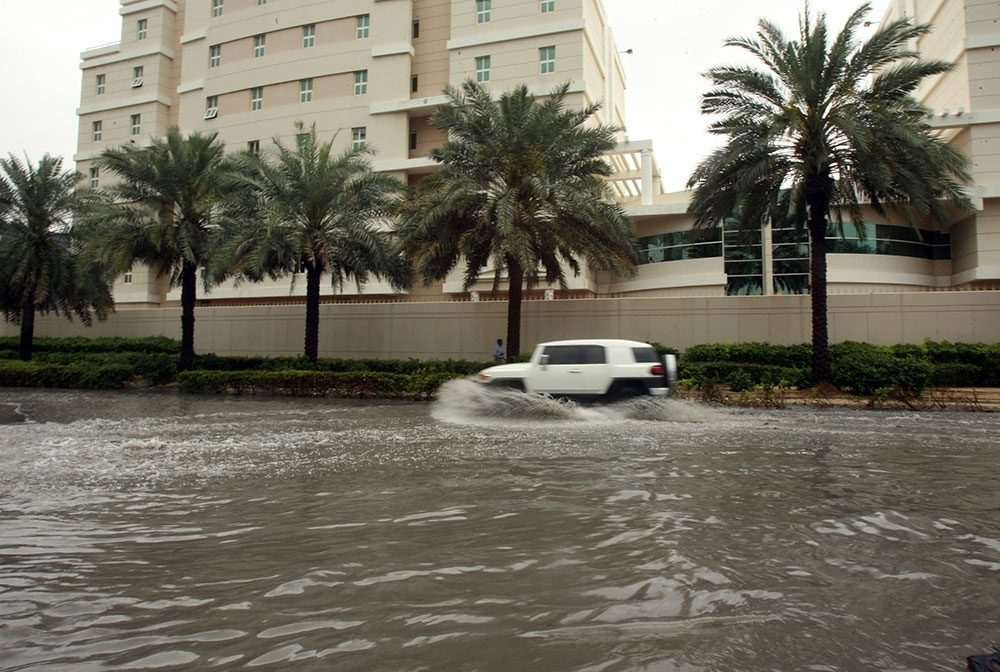- The UAE has seen record levels of rain so far this year
- Previously, the UAE has engaged in ‘cloud-seeding’ efforts to increase the chances of rain in the country
- Rain in Dubai often causes traffic obstructions and flooding
- What starts are mild showers are often escalating into heavy downpours
When it rains, it pours in Dubai.
But the good thing about living in a desert country is that the weather is typically warm and sunny. Rainfall is infrequent and doesn’t tend to last for very long. Until – that is – this year.
What used to be something that happened a couple of times of year seems to have become a regular thing. So far in 2019, we have seen almost two weeks worth of rain come down (according to AccuWeather) and that rain has caused traffic disruptions, leaks, and whole heap of disgruntled residents.
This started as far back as Mid-October, with rainfall reported across the UAE – especially up in the northern Emirates – which has led to an ‘extended cool period’ for residents.

Why is this happening? According to the National Centre of Meteorology, the recent downpours can be attributed to the success of cloud seeding – the process that boosts precipitation in the clouds. According to a spokesperson for the centre, recent efforts have boosted rainfall by as much as 30 per cent.
According to the director of the Centre of Meteorology, Dr Abdullah Ahmed Al Mandous, one of the main reasons for the increase in cloud seeding has been to increase water security in the UAE. In a recent op-ed, the director said “Nearly three decades on from its initial work on cloud seeding… we are proud to continue to advance the vision of the leadership in leveraging cloud seeding for water security.”
Dubai relies heavily on expensive and power-hungry processes like desalination for most of its water, and there’s little doubt that fresh water rain takes some of the pressure off. As an added bonus, it also lowers the temperature. According to Mandous, “The whole exercise will improve the quality of cloud-seeding operations and also provide sustainable solutions to challenges in the wake of water scarcity.”



